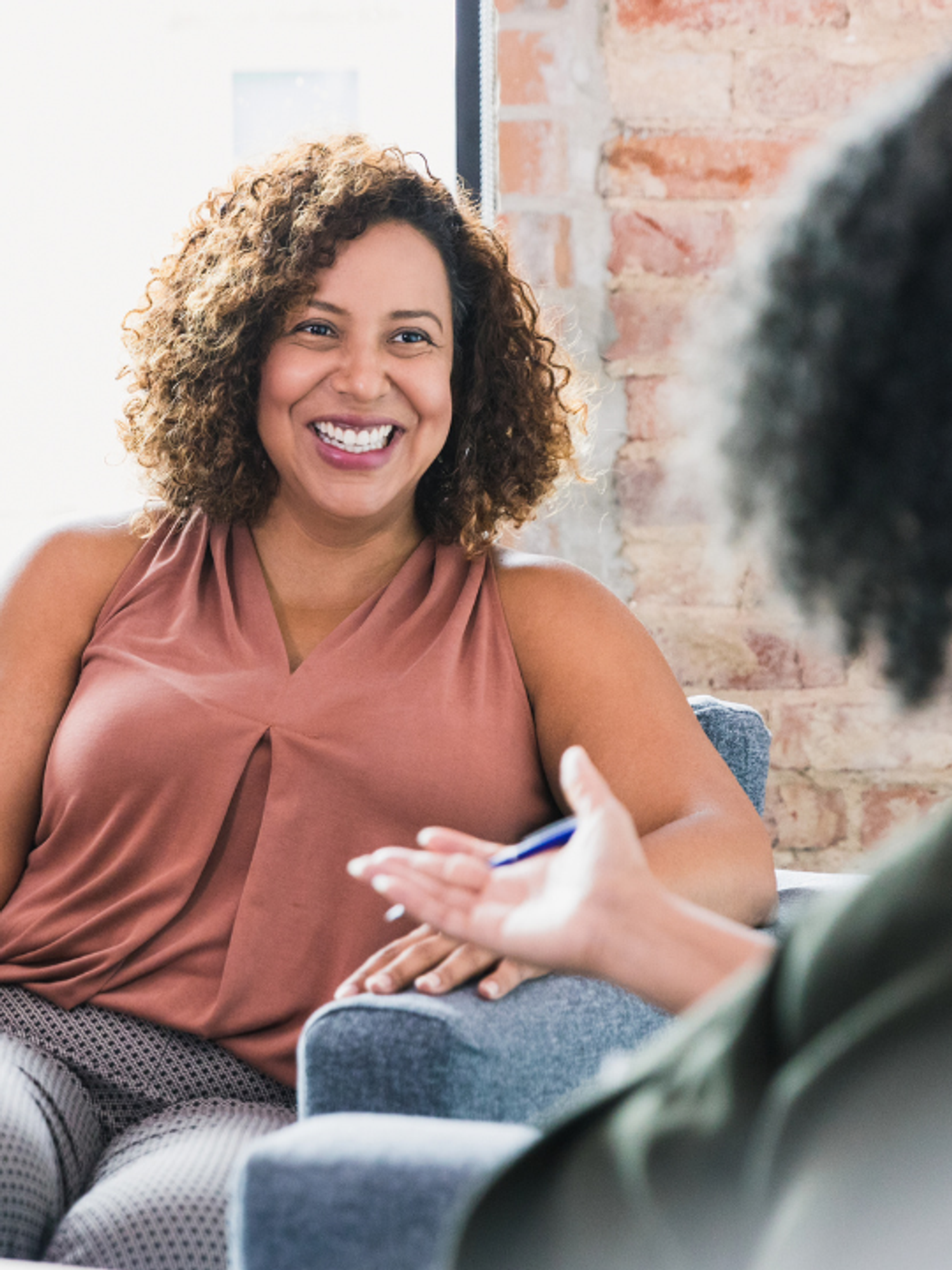8 signs you're experiencing 'Functional Freeze,' the hidden trauma response affecting productivity
You're not lazy, just stuck.
You're not alone in this.
Have you ever found yourself at your desk, ticking off tasks like a robot, feeling as if you're observing your life from the outside? Or perhaps you've spent late nights binge-watching episodes of Big Brother while fully aware that you should be sleeping, yet unable to stop?
That might not be laziness or lack of motivation. You could be experiencing something called a “functional freeze,” a state that’s more common than you might realize. You're not alone in this.

People describe the experience of a functional freeze as “running on autopilot while simultaneously drowning.” It’s a sophisticated psychological state where individuals maintain outward functionality while experiencing profound internal emotional disconnection. On the outside, you’re getting things done—showing up to work on time, paying bills, hitting the gym—but on the inside, it’s a complete physiological and emotional shutdown, leaving you disconnected from everything. Effectively, you are functional yet frozen.
If you’ve ever felt like you’re just going through the motions of life without actually living it, keep reading. This article might change how you view what’s going on in your brain and body.
What is a functional freeze, anyway?
This phenomenon occurs when the nervous system becomes overwhelmed by chronic stress, trauma, or persistent demands, such as a demanding job, caretaking responsibilities, or financial pressures, which triggers the dorsal vagal complex: a primitive survival mechanism that induces emotional and psychological shutdown.
Think of it like your phone when it’s at 2% battery. Yes, everything technically works, but it’s sluggish, apps keep crashing, and you’re just trying to make it through until you can reach a charger. That’s your brain on functional freeze.
The science behind it is fascinating and slightly terrifying. When you’re constantly stressed or overwhelmed, your sympathetic nervous system—the part of your nervous system that controls your body's 'fight-or-flight' responses—gets stuck in the “on” position.
It’s like your nervous system is playing dead, which worked great for our ancestors avoiding sabertoothed tigers, but isn’t so helpful when you’re trying to navigate modern life.
Being in this state is more than just feeling “blah” or being in a cranky mood. Functional freeze is a legitimate neurobiological response to chronic stress, and it can last for weeks, months, or even years if left unchecked.
The tricky part is that because you’re still functioning—still showing up, still getting things done—it often goes unrecognized by both you and the people around you.
8 key signs of functional freeze
You feel emotionally numb
The hallmark sign of functional freeze involves severely diminished emotional responses… all the time. You know how some people describe depression as feeling sad constantly? (Crying, can’t get out of bed, etc.) Functional freeze is more like feeling nothing at all.

Your best friend gets engaged, and you’re genuinely happy for her, but the emotion feels like it was auto-generated, instead of something you feel in your body. You get a parking ticket (which would normally outrage you, but this time, it’s just a shrug of the shoulders. Good things happen, bad things happen, and your emotional response is nowhere to be seen.
Feeling like this isn’t stoicism or being emotionally mature. Your feelings are locked away, stashed in a safe where you can’t access them.
Your body feels like it belongs to someone else
In a functional freeze, you become disconnected from your physical self. You might ignore hunger cues, forget to drink water, or not notice that your shoulders have been practically touching your ears from stress.
People describe it as sensations of “floating outside themselves” or feeling like they’re “watching their life happen from a distance”. It’s not quite dissociation, but you don’t feel present in your skin.
Autopilot mode
When you're a functional freeze, even simple decisions feel overwhelming. You might find yourself doing the same things over and over—same lunch, same songs to listen to, same Netflix show on repeat—not because you love these things, but because choosing feels impossible. Your struggle with decision-making is real and valid.

Your days start to blur together because you’re not present for any of them. You’re going through the motions, but there’s no real intentionality behind your actions.
Persistent procrastination and decision paralysis
Here’s where functional freeze gets cruel: you can handle the basics (mostly), but anything beyond survival seems insurmountable. That creative project you’ve been so excited about? The closet that needs organizing? Your friend’s birthday is inching closer and closer, and you've yet to buy a gift. They all feel like climbing Mount Everest in flip-flops.
Your brain doesn’t have the bandwidth for non-essential tasks because it’s using all its energy to keep you upright and moving.
People are exhausting, even the ones you love
Social interactions start to feel performative, like you’re playing yourself in a movie about your life. Your brain reminds you that you love your friends, but hanging out with them feels like an unavoidable obligation. You find yourself canceling plans—not because you’re busy, but because the thought of having to be “on” already exhausts you.

Functional freeze often drives individuals toward increasing social isolation, not from depression or anxiety, but from a fundamental disconnection from interpersonal experiences. Being alone starts to feel genuinely easier than trying to connect with others.
Your brain is moving through molasses
You know that feeling when you first wake up and your thoughts are all foggy? In a functional freeze, that’s pretty much your entire day. Everyday tasks take longer, information needs repetition, and mental sharpness feels sluggish and dull.
Mental fog of this magnitude can be especially frustrating if you’re used to being on top of your game. You’re still competent, but everything requires more effort than it should.
You’re tired in your bones
This isn’t a “Oops, I stayed up watching Can Me If You Can too late last night,” tired. It’s a “I could sleep for 12 hours and still wake up exhausted” tired. Rest alone won’t alleviate this level of fatigue because your system is stuck in survival mode.
It’s a profound, persistent energy depletion that rest doesn’t resolve, often accompanied by a sense of being “wired but tired,” like your body is buzzing with anxious energy while simultaneously feeling like you could collapse at any moment.
Numbing behaviors feel like salvation
When everything feels too much, it’s natural to reach for things that help you check out. You might be mindlessly scrolling social media for hours, binging shows you’re not even interested in, or pouring that third glass of wine to feel something (or block out the nothingness).
These aren’t necessarily unhealthy behaviors in moderation, but in functional freeze, they become compulsive ways to avoid dealing with the disconnection you’re feeling.

The good news: You can get unstuck
Let’s be clear: if you recognized yourself in the descriptions above, you are not broken, lazy, or weak. Functional freeze is your nervous system trying to protect you. It’s just doing a lousy job of it at this point.
Recovery isn’t about powering through or forcing yourself to feel better. It’s about gently coaxing your nervous system back online. Here’s how to start:
- Start with the breath. Your breath is the fastest way to communicate with your nervous system, and it’s one of the few things you can control when everything else feels chaotic. Try the 4-7-8 technique: breathe in for four counts, hold for seven, exhale for eight.
- Get back in your body. When you’re stuck in functional freeze, gentle movement can help reconnect you with your physical self. Try stretching, gentle yoga, or even just shaking your body like you’re a dog getting out of water (shaking helps discharge stored stress energy. Animals do it naturally after escaping predators.)
- Make tiny decisions. Since decision-making feels overwhelming in a functional freeze, start embarrassingly small. Choose between two of your favorite snacks. Pick which song to listen to. Decide whether to wear the blue shirt or the black one. These micro-decisions help rebuild your executive functioning without overwhelming your already taxed system.
- Create anchors in the day. When everything feels blurry and autopilot-y, small rituals can help you feel more present. Maybe it’s consciously tasting your morning coffee instead of chugging it. (Is that a note of hazelnut, you detect?) Or stepping outside for five minutes after lunch and breathing in the fresh air, no screens allowed. These aren’t life-changing habits—they’re just little moments where you pause and notice you exist.
- Find professional help. Look for practitioners who understand trauma-informed care, somatic experiencing, or polyvagal theory. These approaches work with your nervous system rather than just trying to think your way out of the problem. EMDR, somatic experiencing, and trauma-sensitive yoga can be beneficial because they address the physiological aspects of being stuck, not just the mental ones.

You’re not alone
If you’re struggling with functional freeze, remember that you are not alone. In our hyperconnected, always-on world, functional freeze has become nearly epidemic. We’re all trying to fit into an overstimulated society that isn’t designed for the human nervous system.
The fact that you’re reading this, that you’re looking for answers and ways to feel more alive in your own life—that’s already a step toward unfreezing. Your awareness is the beginning of change.
Your feelings are still there, waiting for you to come back to them. And when you’re ready, they’ll be there to welcome you home.
- Self-aware, diagnosed narcissist uses TikTok to share insider view of how narcissists function ›
- Are you a night owl or an early riser? One group's brains work a lot better. ›
- Boost your Brain: Lifestyle changes that enhance cognitive function in adults ›
- Used books should always go in the freezer for this scary reason - Upworthy ›

